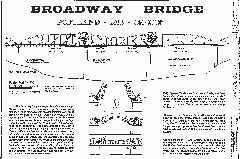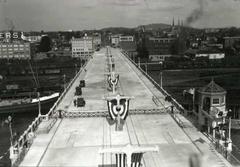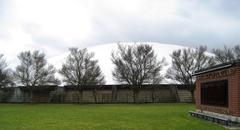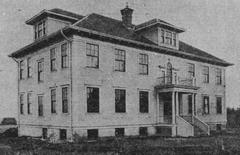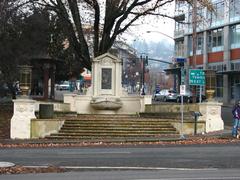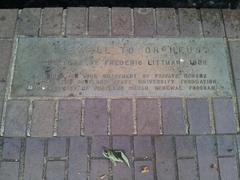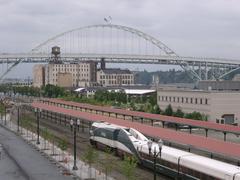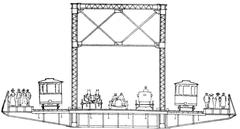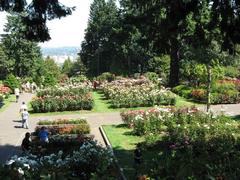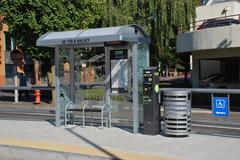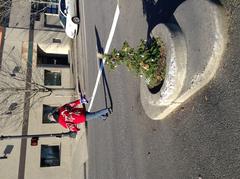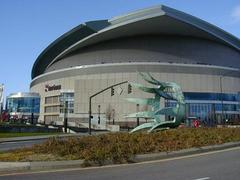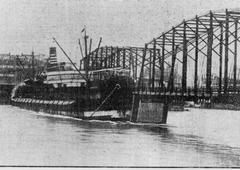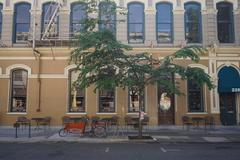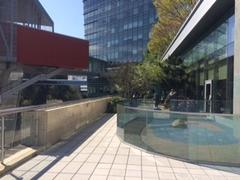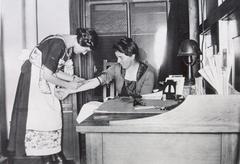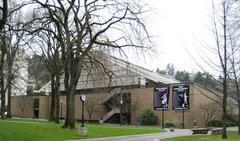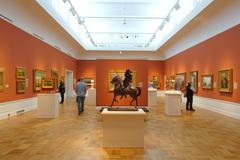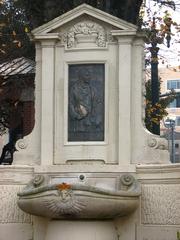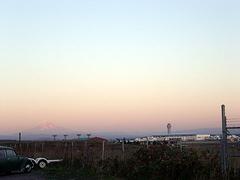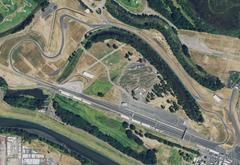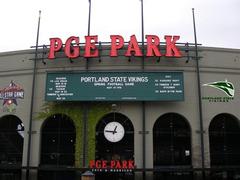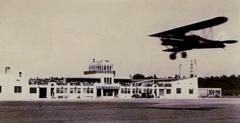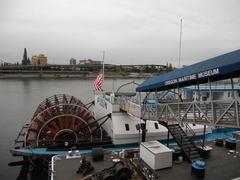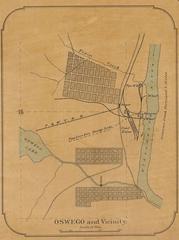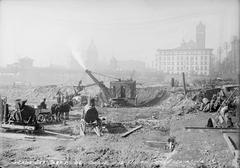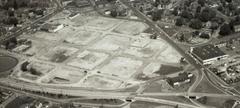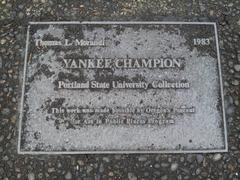Biwa Portland Visiting Hours, Tickets, and Historical Sites Guide
Date: 04/07/2025
Introduction
Portland, Oregon, is celebrated for its dynamic blend of culture, cuisine, and artistic heritage. Among the city’s most intriguing cultural touchstones are the various incarnations of “Biwa”—from the influential Biwa Izakaya restaurant and the historic Japanese lute, to the Biwa Monument commemorating Japanese-Portland exchange. This comprehensive guide delves into the legacy of Biwa in Portland, providing detailed visitor information, historical context, and tips to fully immerse yourself in these unique experiences.
Explore the culinary innovations pioneered by Biwa Izakaya (Biwa Izakaya Official Site), discover the storytelling tradition of the biwa instrument at the Portland Japanese Garden (Portland Japanese Garden), and visit the Biwa Monument as a testament to cross-cultural artistry (Portland Historical Society). Whether you love food, music, or history, this guide offers practical advice and insider knowledge for an enriching Portland visit.
Table of Contents
- Biwa Izakaya: Culinary Landmark
- The Biwa Instrument in Portland
- Biwa Monument
- The Legacy of Biwa Portland Restaurant
- Summary & Traveler Tips
- References and Further Reading
Biwa Izakaya: A Culinary Landmark in Portland
Location and Hours
- Address: Near Doug Fir Lounge, East Burnside District, Portland, OR.
- Hours: Typically 5:00 PM – Midnight, Tuesday to Saturday. Confirm current hours via the official website.
Reservations and Tickets
- Primarily walk-in; reservations recommended on weekends and busy nights.
- No ticketing system—order à la carte or from set-price menus.
Accessibility
- Wheelchair accessible with staff assistance.
- Menu options available for dietary restrictions (call ahead for details).
Brief History & Menu Highlights
Founded by Kina Voelz and Gabe Rosen in the mid-2000s, Biwa Izakaya introduced Portland to Japanese pub culture—blending convivial small-plate dining with a Pacific Northwest twist. Dishes like yakitori skewers, ramen, sashimi, clay pot udon, karaage, and the cult-favorite late-night burger with kimchi mayo and chashu pork became city staples. The raw bar and robust sake selection further elevated the izakaya experience (OregonLive 2016 Review).
Cultural Significance
Biwa wasn’t just about food—it was a community gathering place, drawing chefs, artists, and food lovers into its welcoming, creative atmosphere.
Visitor Tips
- Visit on weekday evenings for a quieter meal.
- Parking: Limited; use public transit or rideshares.
- Nearby: Doug Fir Lounge for music, East Burnside’s shops and galleries.
Frequently Asked Questions (FAQ)
Q: Does Biwa offer vegetarian or vegan options?
A: Yes, vegetarian options are available; contact for vegan specifics.
Q: Is there outdoor seating?
A: Primarily indoor, cozy seating.
Q: Can I host private events?
A: Contact Biwa directly for private dining inquiries.
Q: Are credit cards accepted?
A: Yes, major credit cards are accepted.
The Biwa Instrument in Portland: Visiting Hours, Tickets, and Cultural Significance
Origins and Evolution
The biwa is a pear-shaped Japanese lute, integral to court life in the Heian period and later to traveling minstrels known as biwa hōshi. It served both entertainment and religious functions, notably in epic storytelling traditions such as “The Tale of the Heike” (Learn More).
Over time, the instrument’s popularity waned, but it has experienced a revival, embraced in modern performances and educational programs in Portland and beyond (Portland Japanese Garden).
Cultural Resonance & Storytelling
Portland’s Japanese American community, particularly through the Portland Japanese Garden, preserves and promotes the biwa’s cultural legacy. Regular performances and workshops at the Garden invite both locals and visitors to connect with Japanese heritage (Portland Japanese Garden Events). The biwa’s meditative sound remains central to spiritual and storytelling traditions.
Education and Modern Revival
Biwa workshops in Portland provide hands-on instruction, exploring the instrument’s history, construction, and role in Japanese culture (Portland Japanese Garden Education). These programs foster cross-cultural understanding and enrich the city’s diverse arts scene.
Local musicians have begun experimenting with the biwa, blending traditional tones with contemporary genres, especially during cultural festivals in July (Portland Cultural Events).
Visitor Information: Hours and Tickets
- Venue: Portland Japanese Garden
- Hours: 10:00 AM – 6:00 PM (summer); check for seasonal and event-specific times.
- Tickets: $14–$19 adults; discounts for seniors, students, and children. Additional fees may apply for performances or workshops.
- Workshops: Offered periodically; suitable for all skill levels.
- Accessibility: Fully accessible, with parking and restrooms; contact for more accommodations.
- Nearby: Portland Art Museum, Lan Su Chinese Garden, Pearl District.
Frequently Asked Questions (FAQ)
Q: When are biwa performances held?
A: Most often in summer, especially July; check the Garden’s event calendar.
Q: Are workshops beginner-friendly?
A: Yes, open to all experience levels.
Q: Is the Garden accessible?
A: Yes, including wheelchair access.
Q: How to purchase tickets?
A: Online via the Portland Japanese Garden website, or at the entrance.
Q: Are virtual tours available?
A: Yes, virtual and multimedia resources are offered on the Garden’s website.
Biwa Monument: History, Visitor Information, and Cultural Significance
History and Significance
Located at 215 SE 9th Ave in the historic Pine Street Studios, the Biwa Monument honors the traditional Japanese biwa and highlights the enduring cultural exchange between Japan and Portland. Its design integrates wood and paper elements, evoking Japanese craftsmanship, and stands as a symbol of artistic collaboration (Portland Historical Society).
Visitor Information
- Location: 215 SE 9th Ave, Portland, OR
- Hours: 9:00 AM – 7:00 PM daily
- Tickets: Free admission; guided tours available by appointment (small fee may apply).
- Accessibility: Wheelchair accessible with ramps and paved paths.
Travel Tips & Nearby Attractions
- Best Times: Weekdays for less crowds.
- Transit: Accessible via bus, bike-share; street and garage parking available.
- Nearby: Pine Street Studios (galleries and artist spaces), Portland Japanese Garden (short drive), Central Eastside Industrial District.
Unique Features
Interactive displays and periodic live performances make the Biwa Monument a dynamic site. The design echoes the biwa’s curves, bridging art, music, and history.
Frequently Asked Questions (FAQ)
Q: Is parking available?
A: Yes, street and garage parking nearby.
Q: Are guided tours free?
A: Some may have a nominal fee.
Q: Can I attend events or performances?
A: Yes, check the monument’s website or local listings for schedules.
The Legacy of Biwa Portland Restaurant: Culinary History and Visitor’s Guide
Historical Context
Opening in 2007, Biwa was among Portland’s first authentic izakayas (Willamette Week), introducing Japanese comfort food and late-night dining to a city in the midst of a culinary renaissance.
Culinary Innovations
Biwa’s menu was known for house-made broths, hand-crafted noodles, grilled yakitori, and inventive dishes like the happy hour burger. The restaurant’s approach to sourcing local ingredients and offering a robust sake list set new standards for Japanese dining in Portland (TableAgent).
Community Impact
Biwa fostered a sense of belonging, engaged in charitable activities, and trained many staff who would go on to shape Portland’s food scene. Its collaborative ethos helped catalyze the rise of new Japanese eateries citywide.
Influence and Evolution
Biwa inspired a wave of izakayas and ramen shops, and its sister restaurant Noraneko continues the izakaya tradition (Portland Food and Drink). Biwa’s legacy is evident in the menus and philosophies of many Portland restaurants today.
How to Experience Biwa’s Legacy Today
- Dine at Noraneko: Enjoy ramen and izakaya fare reminiscent of Biwa’s menu (Portland Food and Drink).
- Explore Japanese dining: Many Biwa alumni now run their own restaurants across Portland.
- Attend food events: Look for pop-ups and festivals featuring former Biwa chefs (Travel Portland).
- Support local, community-minded eateries: Continue Biwa’s tradition of sustainability and social engagement.
Frequently Asked Questions (FAQ)
Q: Is Biwa still open?
A: No, Biwa closed in 2018; Noraneko remains open.
Q: Where can I try Biwa-inspired dishes?
A: Noraneko and other local Japanese restaurants run by Biwa alumni.
Q: What set Biwa apart?
A: Pioneering izakaya culture, late-night small plates, and blending Japanese tradition with Portland’s local ingredients.
Q: Are reservations required at Noraneko?
A: Recommended during peak hours; check their website for details.
Summary and Tips for Travelers
Biwa’s influence in Portland extends from its celebrated izakaya to the living tradition of the biwa instrument and the commemorative Biwa Monument. While Biwa Izakaya has closed, its legacy endures through Noraneko, the city’s thriving Japanese dining scene, and ongoing cultural events. The biwa instrument continues to inspire through educational programs and performances at the Portland Japanese Garden (Portland Japanese Garden Events). The Biwa Monument stands as a testament to Portland’s respect for cross-cultural exchange (Portland Historical Society).
For the best experience:
- Plan ahead for performances and workshops.
- Check venue websites for hours, accessibility, and ticketing.
- Explore related food and cultural events for a holistic view of Portland’s Japanese heritage.
- Download the Audiala app for updates on events and insider tips.
Embracing the Biwa in Portland offers visitors a journey through history, music, cuisine, and community spirit.
References and Further Reading
- Biwa Izakaya Official Website
- Portland Japanese Garden
- Willamette Week: Iconic Portland Izakaya Biwa is Closing This Weekend
- Portland Historical Society: Biwa Monument
- Portland Japanese Garden Events Calendar
- Audiala App
- TableAgent: Biwa
- Portland Food and Drink: Biwa Restaurant Closing
- Travel Portland: July Events
- Portland Cultural Events in July
